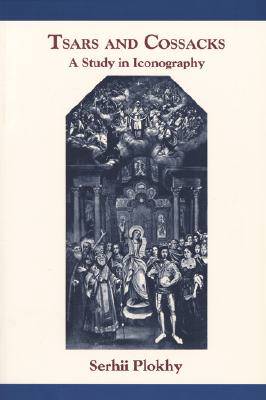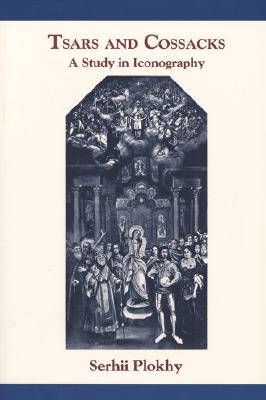
En raison d'une grêve chez bpost, votre commande pourrait être retardée. Vous avez besoin d’un livre rapidement ? Nos magasins vous accueillent à bras ouverts !
- Retrait gratuit dans votre magasin Club
- 7.000.000 titres dans notre catalogue
- Payer en toute sécurité
- Toujours un magasin près de chez vous
En raison de la grêve chez bpost, votre commande pourrait être retardée. Vous avez besoin d’un livre rapidement ? Nos magasins vous accueillent à bras ouverts !
- Retrait gratuit dans votre magasin Club
- 7.000.0000 titres dans notre catalogue
- Payer en toute sécurité
- Toujours un magasin près de chez vous
Description
Ukrainian Cossacks used icon painting to investigate their relationship not only with God but also their relationship with the Russian tsar. Could Emperor Peter I and his adversary in the Battle of Poltava (1709)--the Cossack Hetman Ivan Mazepa--be depicted in the same icon? Why did the Cossack colonels commission icons with the portraits of their tsars, but not of their own Cossack leaders, the hetmans? Could a Catholic king be portrayed in an Orthodox icon? Why are the Russian tsars and Orthodox hierarchs missing on some of the Zaporozhian Cossack icons?
In this groundbreaking study, Serhii Plokhy provides answers to these and many other questions pertaining to the political and religious culture of Ukrainian Cossackdom, as reflected in the Cossack-era paintings, icons, and woodcuts. By encouraging the iconography to "speak," Tsars and Cossacks helps to broaden and deepen our understanding of Ukrainian iconography as well as Russian imperial political culture.Spécifications
Parties prenantes
- Auteur(s) :
- Editeur:
Contenu
- Nombre de pages :
- 102
- Langue:
- Anglais
- Collection :
Caractéristiques
- EAN:
- 9780916458959
- Date de parution :
- 30-04-03
- Format:
- Livre broché
- Format numérique:
- Trade paperback (VS)
- Dimensions :
- 152 mm x 232 mm
- Poids :
- 213 g

Les avis
Nous publions uniquement les avis qui respectent les conditions requises. Consultez nos conditions pour les avis.






